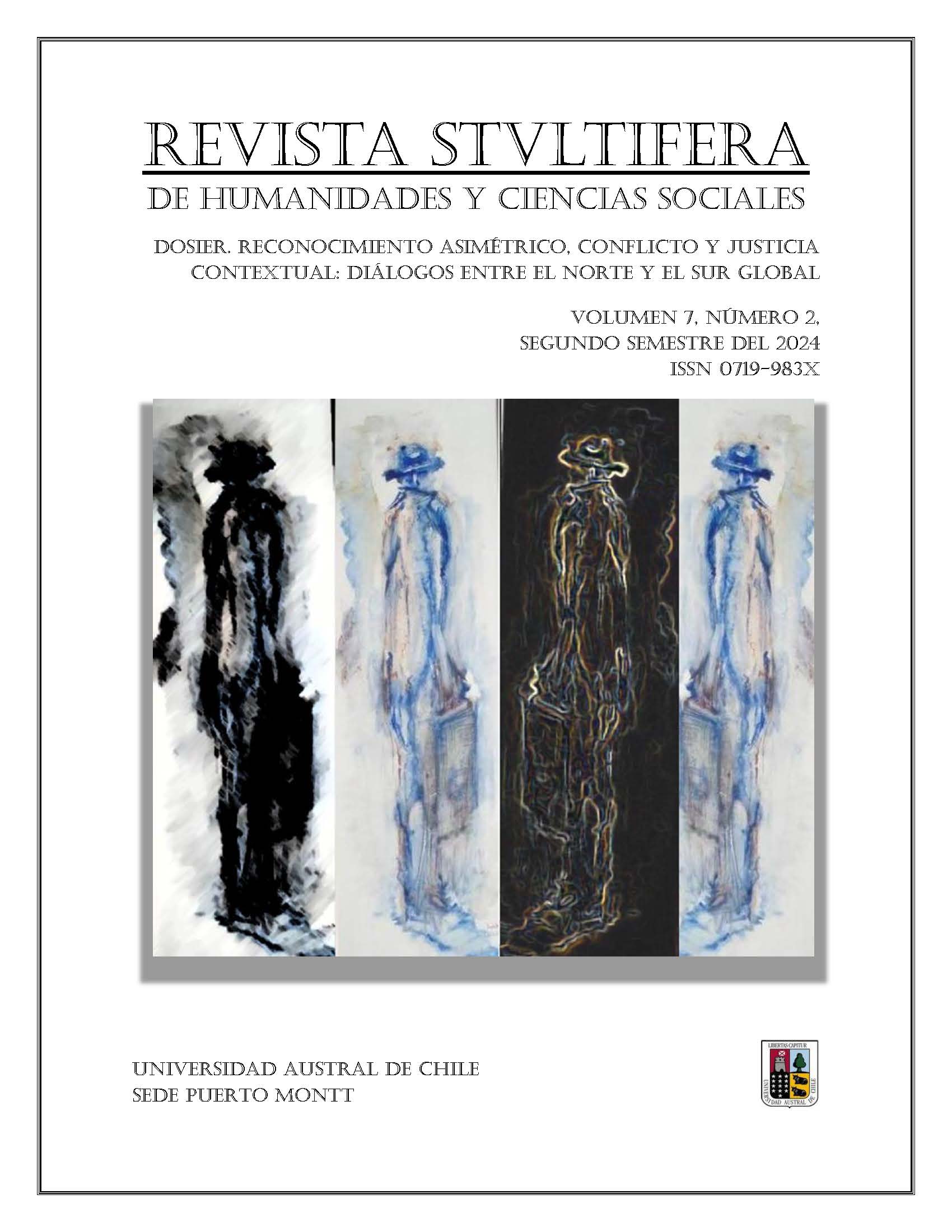Colonialism, Intercultural Dialogue and Reconciliation: Debates between James Tully and Glen Coulthard
Main Article Content
Abstract
This article aims to delve into the most outstanding concepts of James Tully and Glen Coulthard regarding colonialism, decolonization, and Indigenous identity. I review the most relevant theoretical knots and points of discussion for the current debate on interculturality and decolonization using a comparative analysis of both authors. In the first part, different perspectives on colonialism are analyzed. In the second section, I analyze their proposals regarding decolonization. Although both converge in several aspects, the divergence of the diagnoses of both authors leads them to develop opposing analyses in some passages. In the third part, this paper examines the controversies on reconciliation and the dialectic of master and slave, concluding on the importance of deep consideration of the interplay between the effects of institutional recognition and the production of Indigenous subjectivities in the context of state political structures.
Article Details

This work is licensed under a Creative Commons Attribution-NonCommercial 4.0 International License.
Usted es libre de compartir (copiar y redistribuir el material en cualquier medio o formato) y adaptar (remezclar, transformar y construir sobre el material). El licenciante no puede revocar estas libertades siempre y cuando usted siga los términos de la licencia.
La licencia se da bajo los siguientes términos:
Atribución: debe dar el crédito adecuado, proporcionar un enlace a la licencia e indicar si se realizaron cambios. Puede hacerlo de cualquier manera razonable, pero no de ninguna manera que sugiera que el licenciante lo respalda a usted o a su uso.
No comercial: no puede utilizar el material con fines comerciales.
Sin restricciones adicionales: no puede aplicar términos legales o medidas tecnológicas que restrinjan legalmente a otros de hacer cualquier cosa que la licencia permita.
References
Coulthard, G. (2007). Subjects of Empire: Indigenous peoples and the “politics of recognition” in Canada. Contemporary political theory, 6(4), 437-460. https://doi.org/10.1057/palgrave.cpt.9300307.
Coulthard, G. (2014). Red Skin, White Masks: Rejecting the Colonial Politics of Recognition. University of Minnesota Press.
Coulthard, G. (2020). Once were Maoists: Third World currents in Fourth World anticolonialism, Vancouver, 1967–1975. En B. Hokowhitu, A. Moreton-Robinson, L. Tuhiwai-Smith, C. Andersen y S. Larkin (Eds.), Routledge Handbook of Critical Indigenous Studies (pp. 378-391). Routledge.
Engle, K. (2020). The elusive promise of indigenous development: Rights, culture, strategy. Duke University Press.
Estermann, J. (2009). Colonialidad, descolonización e interculturalidad: Apuntes desde la Filosofía Intercultural. En J. Estermann, R. Fornet-Betancourt, F. Garcés, V. H. Quintanilla y E. Ticona (Eds.), Interculturalidad crítica y descolonización (pp. 51-70). III-CAB.
Fanon, F. (1973). Piel Negra, Máscaras Blancas (1952). Editorial Abraxas.
Fraser, Nancy. (1995). From redistribution to recognition? Dilemmas of justice in a postsocialist age. New Left Review. 212(68). https://newleftreview.org/issues/i212/articles/nancy-fraser-fromredistribution-to-recognition-dilemmas-of-justice-in-a-post-socialist-age.
Tully, J. (2008). Public philosophy in a new key: Volume 1, democracy and civic freedom. Cambridge University Press.
Tully, J. (2018). Reconciliation Here on Earth. En J. Tully, J. Borrows y M. Asch (Eds.), Resurgence and Reconciliation: Indigenous–Settler Relations and Earth Teachings (pp. 88-132). University of Toronto Press.
Tully, J. (2020). On Resurgence and Transformative Reconciliation. En J. Tully y N. Turner (Eds.), Plants, People and Places: The Roles of Ethnobotany and Ethnoecology in Indigenous Peoples’ Land Rights in Canada and Beyond (pp. 131-150). McGill-Queen's University Press.
Turner, D. A. (2006). This is not a peace pipe: Towards a critical Indigenous philosophy. University of Toronto Press.
Wolfe, P. (1999). Settler colonialism and the Transformation of Anthropology. Settler Colonialism. Cassel.


 https://orcid.org/0000-0001-9550-8576
https://orcid.org/0000-0001-9550-8576